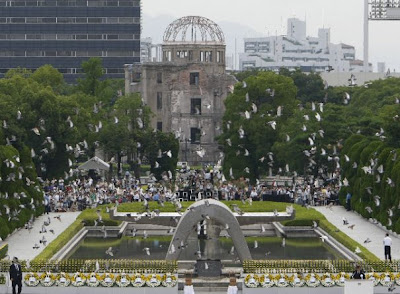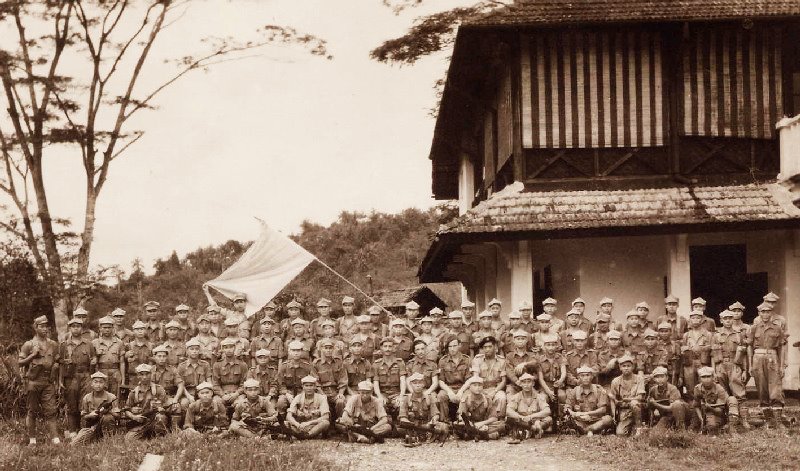64 years since the end of the war

The atomic bombings of Hiroshima and Nagasaki were nuclear attacks near the end of World War II against the Empire of Japan by the United States at the executive order of U.S. President Harry S. Truman on August 6 and August 9, 1945, respectively. After six months of intense fire-bombing of 67 other Japanese cities, followed by an ultimatum which was ignored by the Shōwa regime, the nuclear weapon "Little Boy" was dropped on the city of Hiroshima on Monday, August 6, 1945, followed on August 9 by the detonation of the "Fat Man" nuclear bomb over Nagasaki. These are to date the only attacks with nuclear weapons in the history of warfare.
The bombs killed as many as 140,000 people in Hiroshima and 80,000 in Nagasaki by the end of 1945, roughly half on the days of the bombings. Amongst these, 15–20% died from injuries or the combined effects of flash burns, trauma, and radiation burns, compounded by illness, malnutrition andradiation sickness. Since then, more have died from leukemia (231 observed) and solid cancers(334 observed) attributed to exposure to radiation released by the bombs. In both cities, most of the dead were civilians.
Six days after the detonation over Nagasaki, on August 15, Japan announced its surrender to theAllied Powers, signing the Instrument of Surrender on September 2, officially ending the Pacific Warand therefore World War II. (Germany had signed its unavoidable Instrument of Surrender on May 7, ending the war in Europe.) The bombings led, in part, to post-war Japan adopting Three Non-Nuclear Principles, forbidding that nation from nuclear armament.


Comments
Post a Comment